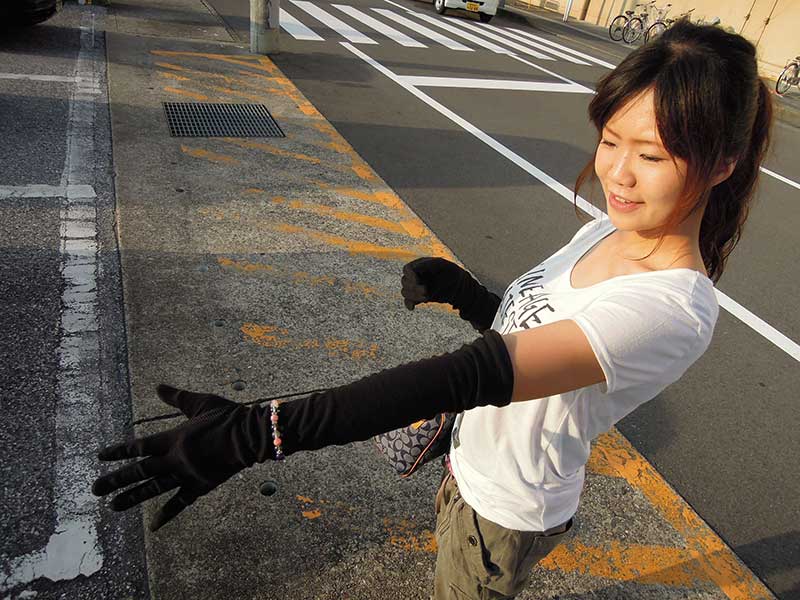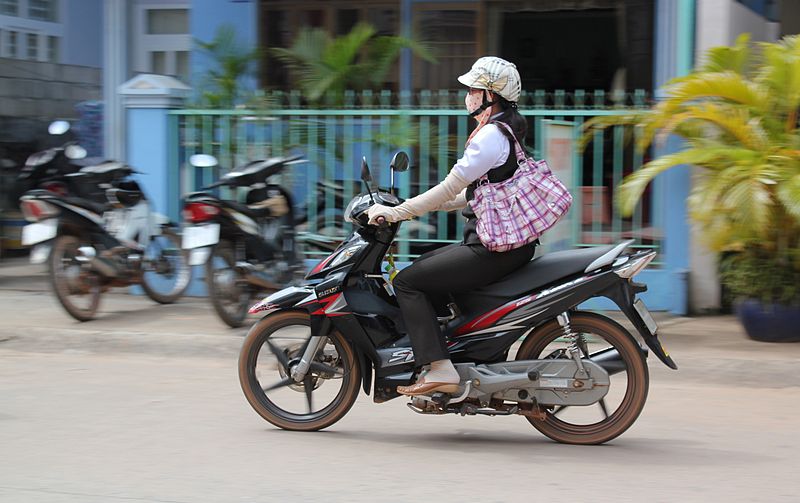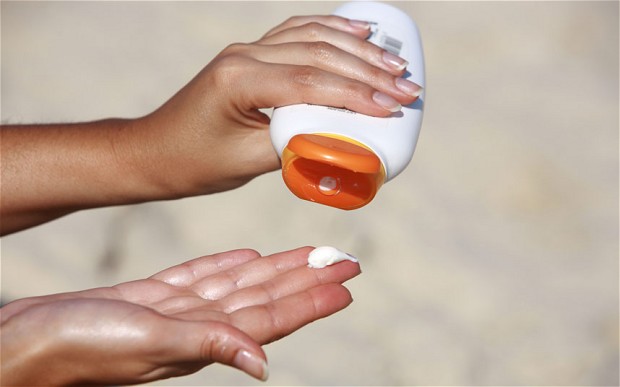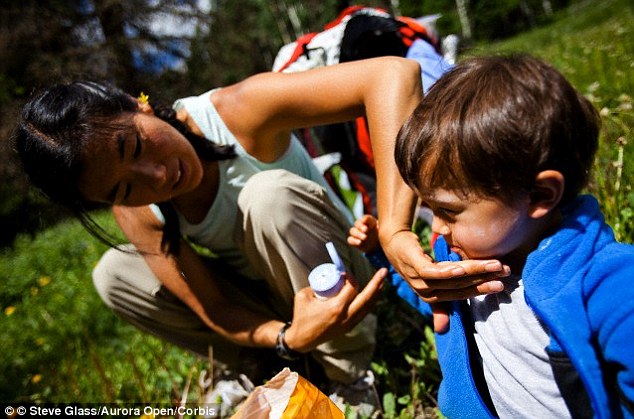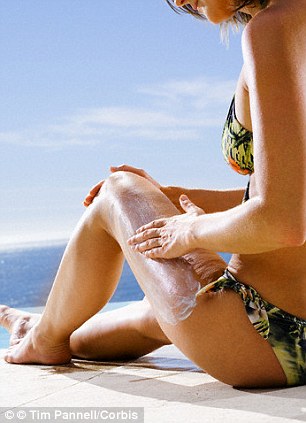[FACT OR FAKE #90] Can You Get Skin Cancer If You Don't Apply Sunscreen Daily?
Wearing sunscreen has always been synonymous with sun safety and skin cancer protection, as it prevents the sun's harmful UVA and UVB rays from causing DNA damage. But is our skin more susceptible to cancer if we don't use sunscreens daily? Your weekly SAYS' FACT OR FAKE columnist Sadho looks at facts to determine a conclusion.
One of the advantages of having Asian skin, due to the fact that it contains more melanin (an effective absorber of light) than Caucasian skin, is that it burns less easily and is therefore less prone to sun damage and skin cancer. But it can tan more easily and possibly get discoloured.
However, because Asian skin is less susceptible to getting sunburn, we may not realise the long term danger from being exposed to UV rays. For example, higher risk of skin cancer.
A Vietnamese motorcyclist wears long gloves to block the sun, despite the tropical heat.
Image via wikimedia.orgWhile it's proven that sunscreens do help protect our skin from sunburn, what about the evidence for sunscreens protecting us from skin cancer? With Malaysians being exposed to the sun daily, does it really matter whether we use SPF everyday or not?
1. Many sunscreens DO NOT block Ultraviolet A radiation, which, as the Journal of Investigative Dermatology notes, does not primarily cause sunburn but can increase the rate of melanoma (a type of skin cancer) and photodermatitis (sun poisoning)
Melanoma, as per its Wikipedia entry, is a type of skin cancer which forms from melanocytes (pigment-containing cells in the skin). Particularly common among Caucasians, especially northern Europeans and northwestern Europeans, living in sunny climates, Melanoma is less common than other skin cancers. However, it is much more dangerous if it is not found in the early stages. It causes the majority (75%) of deaths related to skin cancer. Australia and New Zealand have the highest rates of melanoma in the world.
Photodermatitis, sometimes referred to as sun poisoning or photoallergy, is a form of allergic contact dermatitis in which the allergen must be activated by light to sensitize the allergic response, and to cause a rash or other systemic effects on subsequent exposure. The second and subsequent exposures produce photoallergic skin conditions which are often eczematous.
2. Use of sunscreen is recommended by medical organisations such as the American Cancer Society because sunscreens aid in the prevention of squamous cell carcinomas (a similar to the kind of skin cancer that affected Hugh Jackman's nose)
3. The use of broad-spectrum (UVA/UVB) sunscreens can address melanoma and photodermatitis, while a diligent use of sunscreen can also slow the development of wrinkles and sagging skin
Sunscreens with broad spectrum protection (against UVA and UVB rays) and with sun protection factor (SPF) values of 30 or higher are recommended. Use sunscreen even on hazy days or days with light or broken cloud cover because UV rays still come through.
Always follow directions when applying sunscreen. Ideally, a 1-ounce application (about a shot glass or a palmful of sunscreen) is recommended to cover the arms, legs, neck and face of an average adult. Protection is greatest when sunscreen is used thickly on all sun-exposed skin.
Sunscreens need to be reapplied at least every 2 hours to maintain protection. Sunscreens can wash off when you sweat or swim and then wipe off with a towel, so they might need to be reapplied more often – be sure to read the label.
Some people use sunscreens to stay out in the sun for long periods of time without getting sunburned. Sunscreen should not be used to spend more time in the sun than you otherwise would, as you will still end up with damage to your skin.
4. While use of sunscreens may help reduce our exposure to UV light and reduce our risk of melanoma, it comes without guarantee
Besides, if we stay in the sun for a long time, we are at risk of developing skin cancer even if we have put on sunscreen.
5. The cosmetics industry, time and again, has insisted that it had never claimed sunscreens could stop skin cancer
Dr Chris Flower, director general of the Cosmetic, Toiletry and Perfumery Association, said: ‘As cosmetic producers we never talk about cancer in relation to the product - we cannot talk about protecting against or stopping disease.
"We never recommend that sun care products should be used to stay out in the sun longer, only as part of ‘sun safe’ behaviour, which includes staying out of the sun during the hottest part of the day, and covering up.
We can’t use the term ‘sunblock’ or anything that suggest there is 100 per cent protection. We can’t say total protection, the strongest term we can use is ‘very high’ protection. The first line of defence is to avoid sun, the second is to cover up with a sunhat, T-shirt and trousers, and the third line of defence is to use a sunscreen."
FACT: In conclusion, while sunscreens may not prevent skin cancer, if not used daily, our skin is more susceptible to cancer. Therefore, not using sunscreen daily can cause skin cancer.
The Skin Cancer Foundation advises everyone follow its comprehensive prevention guidelines, which recommend wearing sunscreen, along with practicing other sun safety habits.
We tend to think we are invincible when we apply sunscreen onto our body every two hours in its highest SPF form, but the longer we’re out in the sun, the more we’re increasing our UV ray exposure.
Wearing a hat, loose-fitting clothing, and seeking shade when the sun is at its highest point are some tips to keep in mind, and can help decrease the 3.5 million skin cancers cases diagnosed annually.
